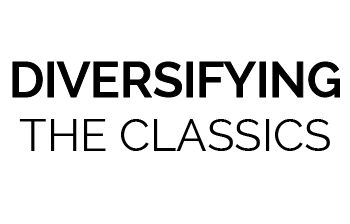Projects in the Works: MEX-Clásicos Spanish-Language Adaptations
In 2023, Diversifying the Classics received an Alianza-MX grant to expand our mission of
promoting Hispanic classical theater to collaborate with Mexican artists and educators. With this
grant, Diversifying the Classics partnered with Professor Gabriela Villanueva of the Universidad
Nacional Autónoma de México (UNAM) to create MEX-Clásicos with a team of UCLA graduate
students including Saraí Jaramillo, Rachel Kaufman, Galo Lopez, Rebecca Smith, and Sofía
Yazpik and postdoctoral fellow Isaac Giménez.
One of MEX-Clásicos’ initiatives is the expansion of our Golden Tongues series, which
commissions English adaptations of Hispanic classics by L.A.-based playwrights. We have
commissioned three Spanish-language versions of comedia from Mexico-based playwrights.
Juan Carrillo of Los Colochos theater company is developing an adaptation of Rodrigo de
Cota’s Diálogo entre el amor y un viejo, playwright-screenwriter David Gaitán is working on a
brand-new comedia in verse, and the Colectivos Mulas Teatro is reimagining the last days of
Erauso, the protagonist of Juan Ruiz de Alarcón’s La monja alférez. Later this year, these
adaptations will be presented at LA Escena 2024 in Los Angeles and at UNAM in Mexico City.
MEX-Clásicos’ other major initiative is the development of children’s adaptations of Hispanic
comedias. To begin the project, we are developing 6 Spanish-language picture book
adaptations for elementary-age students. So far, we have workshopped versions of
Fuenteovejuna by Lope de Vega, La vida es sueño by Pedro Calderón de la Barca, El animal
de Hungría by Lope de Vega, La fuerza de la costumbre by Guillén de Castro, Valor, agravio, y
mujer by Ana Caro, and El rey naciendo mujer by Luis Vélez de Guevara.
Our next steps are to continue developing our children’s book versions as we work with presses
in Mexico and to continue supporting a comedia workshop that has formed at UNAM. The
workshop brings together diverse disciplines, professors, and students each month to discuss
theoretical texts on translation, to think about the borders between adaptation and appropriation,
and to workshop comedia adaptations in progress.
Thank you to Alianza-MX for making all this possible!



No Comments